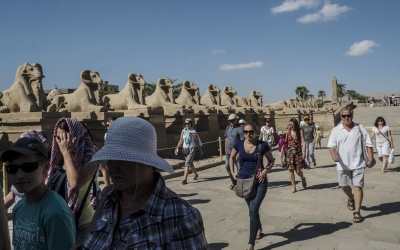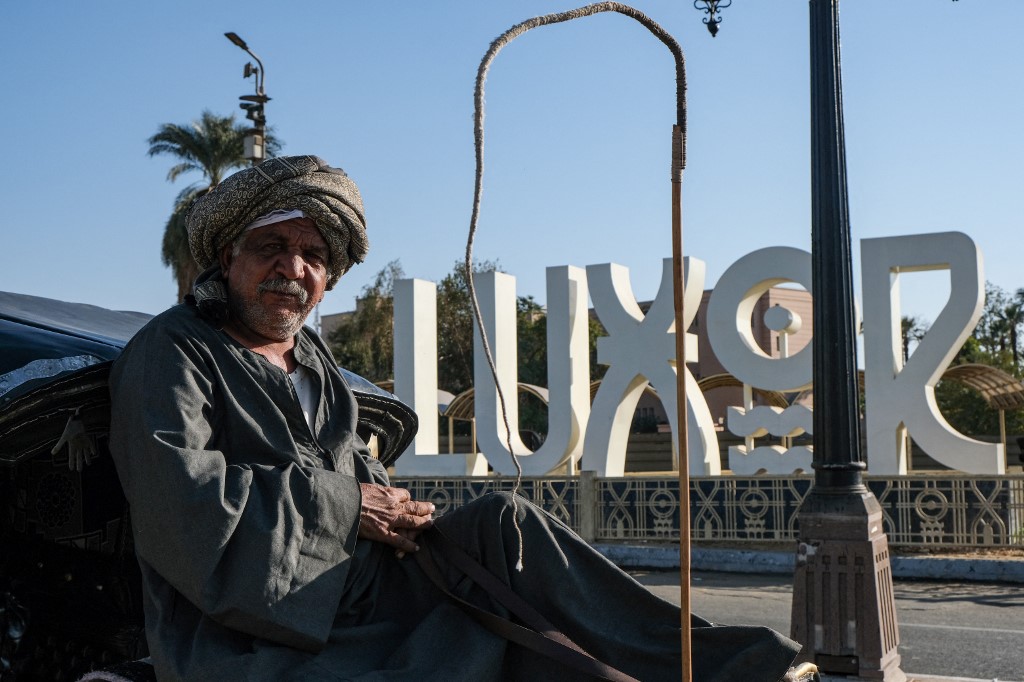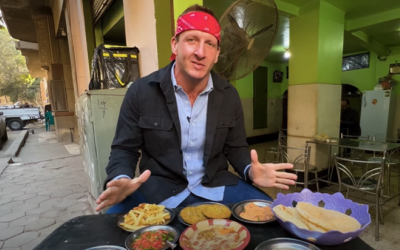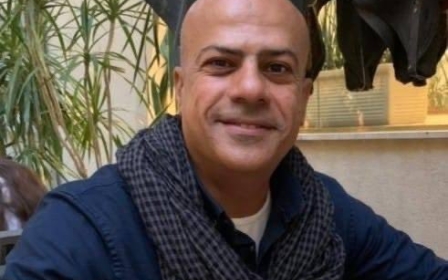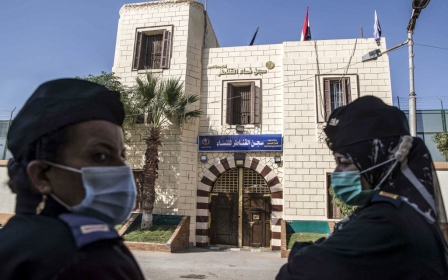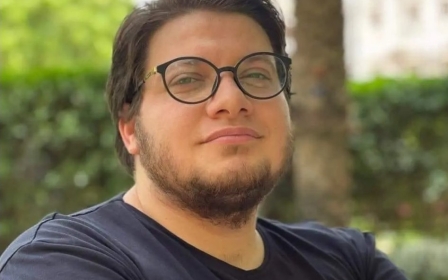Egypt: Luxor bazaar owners stunned by police raids, targeting foreign currency
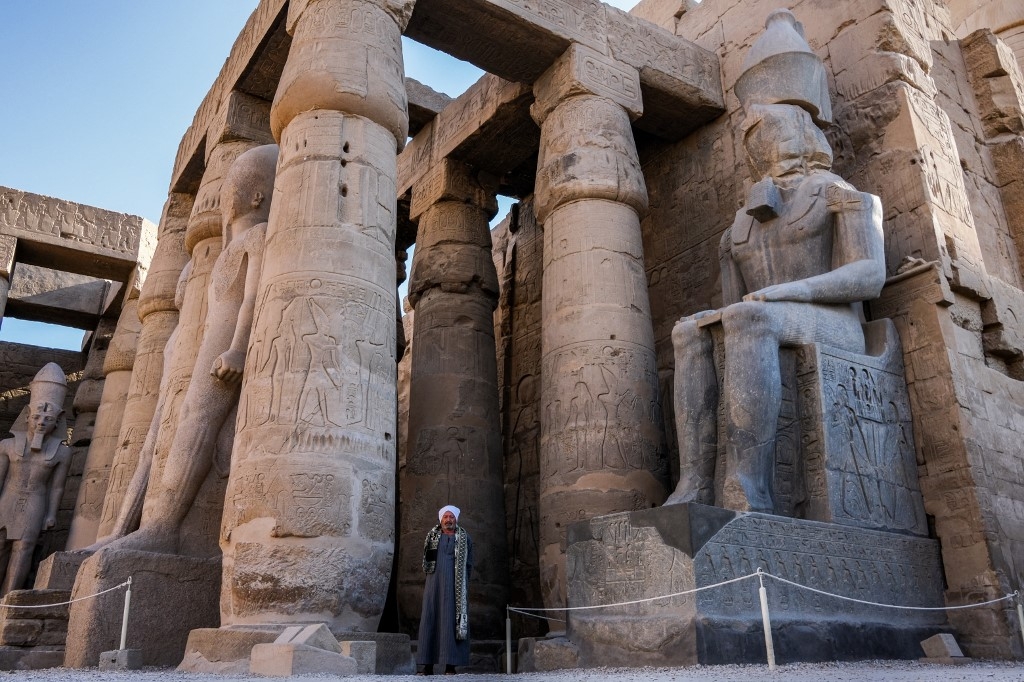
Anger is rife among tourism workers and bazaar owners in Egypt's ancient city of Luxor, following a major security crackdown on the city's shops last week.
According to eyewitnesses, police officers swooped down on bazaars and exchanges in the city in search of foreign currency, and what they termed "foreign currency hoarders".
They entered dozens of shops, confiscated foreign currencies and arrested workers after accusing them of involvement in the illegal foreign currency trade.
Hamees Bazaar, which is located in the main tourist market in the city, was one of the shops that was raided on 6 April.
The bazaar's owner accused the police of "unlawfully" taking money from the shop and arresting the shop's accountant.
"They stormed into the shop, ordered the accountant to open its safe and took all the money in it," the shop's owner Samir Ali told Middle East Eye. "I do not know why they did this."
After taking the money, which included foreign banknotes, police officers arrested the shop's accountant.
The shop's accountant was one of many people who were arrested that day under the charge of possessing or trading with foreign currency illegally.
The accountant, Ali said, was imprisoned initially for four days and then for 15 days, pending investigation.
A tour guide who was about to enter a foreign exchange office to exchange foreign currencies for Egyptian pounds was also arrested and accused of illegally possessing these currencies, eyewitnesses said.
Following these incidents, bazaar owners like Ali and others in the tourism industry in Luxor are concerned that they can end up in jail if they are caught in possession of foreign currency.
Egyptian law does not criminalise the possession of foreign currencies, but the same law bans the selling or purchase of foreign currency outside the banking system and the nation's licensed foreign exchange offices.
This is why some of the colleagues of the tour guide arrested on Wednesday on his way to a foreign exchange office to exchange some dollars are fearful.
"My colleague's arrest has made us all afraid," a colleague of the arrested guide, who requested anonymity, told MEE.
Ali said he would start asking his clients to pay him in Egyptian pounds, instead of foreign currencies.
"Tourists usually pay in the currency of their country," Ali said. "However, with these raids possibly happening other times in the future, I will not accept any foreign currencies in my shop."
Some members of parliament defended the raids on Luxor's shops, saying they were launched after police received information that some of the city's bazaars were involved in the illegal foreign currency trade in the midst of a financial crisis partly caused by the war in Ukraine.
Apart from depriving Egypt of a significant portion of revenues from the tourism sector, the war is also causing Egypt to pay more for almost all its imports, including wheat imports that used to come mostly from Russia and Ukraine.
'Bazaars and shops selling products to tourists cannot hoard foreign currencies outside the framework of law'
- Amani al-Shaouli, MP
International economic developments because of the war are also causing a massive flight of foreign capital from Egypt, sending the country's financial planners scrambling for support from fellow Arab states and the International Monetary Fund.
Foreign currency reserves are also dropping dramatically, spreading fear of a darker economic future in the country.
Egypt's fear, however, is that the same tough economic conditions will open the door for the emergence of a parallel foreign currency market, especially with traders and importers finding it difficult to get their foreign currency needs from the nation's banks.
"Bazaars and shops selling products to tourists cannot hoard foreign currencies outside the framework of law," Amani al-Shaouli, a member of the committee on tourism and civil aviation in the House of Representatives told MEE.
Tourist hub
Luxor is by far the epicentre of archaeological tourism in Egypt.
The city is an open-air museum that boasts a huge number of monuments and archaeological marvels, including the Luxor and Karnak temple complex.
The police raids on bazaars and foreign exchange offices in the city come as the city continues to receive more foreign tourists, bucking a general trend in Egypt where the tourism sector has been hit hard by the ongoing war in Ukraine.
Hotel occupancy in Luxor ranges between 60 and 70 percent, and tourism specialists attribute this considerably high occupancy rate to Luxor's independence from tourist inflows from Russia and Ukraine.
Tourists from the two countries usually go to the Red Sea resorts of Sharm el-Sheikh and Hurghada, areas that are keenly aware of a lack of tourist income since the beginning of the war.
Nevertheless, there are fears that such police practices will affect tourism in the city.
The raids come as Egyptians point accusing fingers at their country's police for tarnishing the reputation of the tourism sector in the wake of the police's scandalous treatment of a famous American food vlogger.
In a recent video that was watched by hundreds of thousands of followers, Will Sonbuchner claimed that his filming equipment, including his cameras, camera chargers and drone, was seized at Cairo International Airport and given back to him only upon his departure.
His video caused a social media uproar in Egypt, but also reaction from some people, including Arab food and travel bloggers who had different experiences in Egypt.
One of these bloggers said he usually gets support from police, while filming in Egypt.
The Egyptian government has been working hard to cushion the effects of the war in Ukraine on the local tourism sector by searching for alternative markets for tourists.
Tourism is a vital sector of the Egyptian economy, one that contributes 12 percent of Egypt's GDP and employs one in every 10 workers.
'War' on tourism
Al-Shaouli's colleagues have already summoned Interior Ministry officials to discuss the case of Luxor's shops.
The discussion would aim to set new regulations for transactions in the city in foreign currencies.
'We need regulations to protect tourism workers who can do nothing but accept whatever money given them by the tourists'
- Bahaa Abulhamd, MP
Nonetheless, a local rights group described the latest raids on Luxor's shops as a "war" against a sector of paramount importance for a large number of Egyptian workers and for the Egyptian economy.
Some MPs are repeating the same criticism.
They also warn against the effect police raids on shops in the tourist city would have on the tourism sector as a whole and the living conditions of its tourism workers.
MP Bahaa Abulhamd, a representative of Luxor in the House of Representatives, called for the presence of clear regulations for commercial dealings with tourists in the city.
Luxor's tourism workers, he said, earn their living with honour while economic conditions become more difficult day after day.
"Should horse carriage drivers, for example, turn back the fare paid [for] them by tourists if it is not in Egyptian pounds?" Abulhamd asked. "We need regulations to protect tourism workers who can do nothing but accept whatever money given to them by the tourists," he told MEE.
Middle East Eye propose une couverture et une analyse indépendantes et incomparables du Moyen-Orient, de l’Afrique du Nord et d’autres régions du monde. Pour en savoir plus sur la reprise de ce contenu et les frais qui s’appliquent, veuillez remplir ce formulaire [en anglais]. Pour en savoir plus sur MEE, cliquez ici [en anglais].


